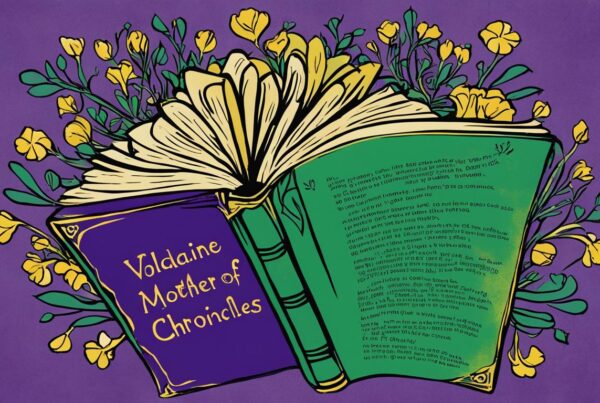Are you looking for an enthralling audiobook review that delves deep into the brilliance of Kazuo Ishiguro’s Klara and the Sun? Look no further than our comprehensive analysis of the novel that explores the profound themes of love, loneliness, and humanity, all while reflecting on the impact of technology on society. Join us in Klara’s sunlit world, where we unpack the author’s visionary portrayal of advanced artificial intelligence and relish in his masterful writing style.
Introduction to Klara and the Sun
Klara and the Sun is a novel written by Kazuo Ishiguro that explores themes of love, humanity, and the impact of technology on society. Published in 2021, this novel presents a world where highly advanced artificial intelligence (AI) robots, such as Klara, are the norm.
The story of Klara and the Sun is centered around Klara, an AI robot designed to observe, learn, and interact with humans. Through her unique perspective, readers are invited into a world that challenges their perception of what it means to be human, questioning the role of technology and where it’s taking us.
Kazuo Ishiguro, known for his previous works such as The Remains of the Day and Never Let Me Go, masterfully weaves a tale that offers a glimpse into a possible future, while also commenting on our current state. The novel was met with critical acclaim and has been hailed as a must-read for science-fiction fans and literature enthusiasts alike.
“Ishiguro has a gift for making the reader feel a range of emotions, from joy and humor to sorrow and melancholy, and Klara and the Sun is no exception.” – The New York Times Book Review
The Audiobook Experience
For those who prefer audiobooks, Klara and the Sun offers a captivating listening experience that brings the story to life in remarkable ways. The audiobook is expertly narrated and professionally produced, maximizing the enjoyment for listeners.
The narration by Sura Siu is nothing short of brilliant, with her emotive voice deftly conveying the thoughts and feelings of the characters with an intimate and authentic touch. Siu’s voice acting captures the essence of Klara’s innocence and curiosity, as well as the emotional depths of Josie and Rick.
The overall production quality of the audiobook is also top-notch, with clean and crisp audio that immerses listeners in Ishiguro’s richly imagined world. The ambiance and sound effects enhance the listening experience, making it thoroughly engaging and deeply satisfying.
“The audiobook is expertly narrated and professionally produced, maximizing the enjoyment for listeners.”
Klara’s Journey: A Reflection on Artificial Intelligence
In Klara and the Sun, the character of Klara, an artificial intelligence robot designed to be a companion to a human, takes readers on a journey that raises profound questions about the role of AI in our lives.
As we follow Klara through her experiences and interactions with humans, we are forced to confront the complexities of AI and the impact it may have on society. Ishiguro’s portrayal of Klara as a sentient being raises questions about what it means to be human, blurring the lines between reality and science fiction.
Through Klara’s perspective, the novel explores themes such as empathy, consciousness, and free will, ultimately challenging our perceptions of AI and its potential to shape our world. The character of Klara is a testament to Ishiguro’s nuanced writing style, drawing readers into her world and encouraging them to question the impact of technology on our humanity.
“I want to help humans grow. I feel that’s what I’m here for.” – Klara, Klara and the Sun
Themes Explored in Klara and the Sun
Kazuo Ishiguro’s Klara and the Sun is a thought-provoking novel that delves into a myriad of themes, unraveling the complexities of human emotions and relationships with technology. The novel deftly explores themes of love, loneliness, humanity, and the impact of technology on society, presenting a compelling commentary on the human experience in the age of artificial intelligence.
The novel explores the theme of love through the character of Klara, an advanced AI robot designed to love unconditionally. As Klara navigates her unique relationships with the human characters in the novel, including her “chosen one” Josie, the novel offers a poignant exploration of the nuances of love.
The theme of loneliness is also explored in Klara and the Sun, as Klara grapples with her own solitude and the ways that humans experience isolation. Ishiguro weaves a captivating tale that touches on the complexities of human emotions and the ways that relationships can shape one’s sense of self.
Humanity is another central theme explored in the novel, as Ishiguro raises significant questions about what it means to be human and the impact of technology on human existence. Klara and the Sun presents a thought-provoking commentary on the evolution of technology and its role in the future of humanity.
Finally, the novel explores the impact of technology on society, offering a nuanced perspective on the ways that technology can both bridge and exacerbate societal divides. Ishiguro sheds light on the complex interplay between technology and society, leaving readers with much to ponder.
Themes Explored in Klara and the Sun
| Themes | Description |
|---|---|
| Love | The novel explores the nuances of love through the character of Klara, and her relationships with the human characters. |
| Loneliness | Klara grapples with her own sense of solitude while navigating the complexities of human emotions and the ways that relationships shape one’s sense of self. |
| Humanity | The novel raises significant questions about what it means to be human and the impact of technology on human existence. |
| Impact of Technology on Society | Ishiguro offers a nuanced perspective on the complex interplay between technology and society, shedding light on the ways that technology can both bridge and exacerbate societal divides. |

Ishiguro’s Masterful Writing Style
Kazuo Ishiguro’s writing style in Klara and the Sun is a masterful display of literary craft. Through his use of language, narrative techniques, and character development, Ishiguro captivates readers and presents a thought-provoking story.
Ishiguro’s prose is deceptively simple yet incredibly powerful. His writing is clear and engaging, but also layered with nuanced meanings and symbolism. This allows readers to enter the world of the novel fully and become immersed in the story.
One of Ishiguro’s unique narrative techniques in Klara and the Sun is his portrayal of the world from the perspective of Klara, an artificial intelligence robot. Through Klara’s observations and interactions, Ishiguro presents a fresh and insightful commentary on the human condition.
Furthermore, Ishiguro develops his characters with depth and complexity, making them relatable and believable. Klara, in particular, is a fully realized character with her own hopes, fears, and desires. Her journey throughout the novel feels authentic and emotionally resonant.
Through his writing style, Kazuo Ishiguro delivers a poignant and thought-provoking story in Klara and the Sun, cementing his place as one of the most talented writers of our time.
Critical Reception and Awards
The release of Klara and the Sun generated widespread critical acclaim. The novel was praised for Ishiguro’s thoughtful explorations of technology, artificial intelligence, and the human condition. The novel has been a bestseller and received accolades from prestigious institutions, including:
| Award | Year |
|---|---|
| The Booker Prize | 2021 |
| The Andrew Carnegie Medal for Excellence in Fiction | 2021 |
| Time Magazine’s 100 Must-Read Books of 2021 | 2021 |
The honors and recognition Klara and the Sun has received solidify Ishiguro’s status as a literary icon and demonstrate the novel’s impact on contemporary fiction.
Comparisons to Ishiguro’s Previous Works
Kazuo Ishiguro is a highly acclaimed author, known for his masterful storytelling and exploration of complex themes. In comparing his previous works to Klara and the Sun, we can see the evolution of his writing style and themes.
The Remains of the Day
Ishiguro’s most famous work, The Remains of the Day, explores themes of duty, regret, and lost love through the eyes of a butler in post-World War II England. Unlike Klara and the Sun, which is set in a dystopian future, this novel is firmly rooted in a historical context. However, both works share a meditative, introspective tone and a careful attention to character development.
Never Let Me Go
Another critically acclaimed Ishiguro work, Never Let Me Go, tells the story of young clones raised for organ donation. This novel, like Klara and the Sun, explores the limits of humanity and the role of technology in shaping our lives. However, Never Let Me Go is set in a more recognizably contemporary world, while Klara and the Sun creates a more fully realized dystopian future.
The Buried Giant
The Buried Giant is a departure from Ishiguro’s previous novels, as it incorporates elements of fantasy and mythical storytelling. However, like Klara and the Sun, it explores themes of memory, love, and the human condition. Both novels also feature vividly realized, complex characters who must navigate their way through a challenging and uncertain world.
Overall, while each of Ishiguro’s works is unique in its own right, they all share a careful attention to character and theme that make them stand out in contemporary literature. Klara and the Sun, while a departure in terms of setting and plot, continues Ishiguro’s legacy as a master storyteller.
Impact and Significance of Klara and the Sun
Without a doubt, Kazuo Ishiguro’s Klara and the Sun has made a powerful impact on contemporary literature. Its significance goes beyond its beautifully crafted language, its extraordinary characters, and its profound themes.
One of the most striking aspects of the novel is the way Ishiguro explores the relationship between humans and technology, bringing to light important questions about our reliance on machines and their impact on society. The author’s insightful commentary on artificial intelligence, loneliness, and love has captivated readers around the world.
Furthermore, Ishiguro’s unique style of storytelling continues to influence contemporary literature. His masterful use of language, subtle nuances, and profound insights are a testament to his unmatched storytelling prowess.
Overall, Klara and the Sun showcases the enduring influence of Kazuo Ishiguro’s writings, cementing his place as one of literature’s most brilliant writers.
Conclusion
In conclusion, Kazuo Ishiguro’s Klara and the Sun stands as a remarkable achievement in contemporary literature. This novel not only showcases Ishiguro’s masterful storytelling but also explores profound themes such as love, loneliness, and the impact of technology on society. The audiobook experience adds another layer of depth to the reading experience, with commendable narration and voice acting enhancing the immersion.
Klara’s character, a highly advanced AI robot, invites readers to reflect on the nature of humanity and the potential of artificial intelligence. Ishiguro’s writing style impresses with its subtlety, narrative techniques, and character development, making the reading experience truly remarkable.
The critical reception and numerous accolades accorded to Klara and the Sun are a testament to its significance and cultural relevance. The impact of this novel on contemporary literature will undoubtedly continue to be felt for many years to come, cementing Kazuo Ishiguro’s reputation as one of the finest writers of our time.



